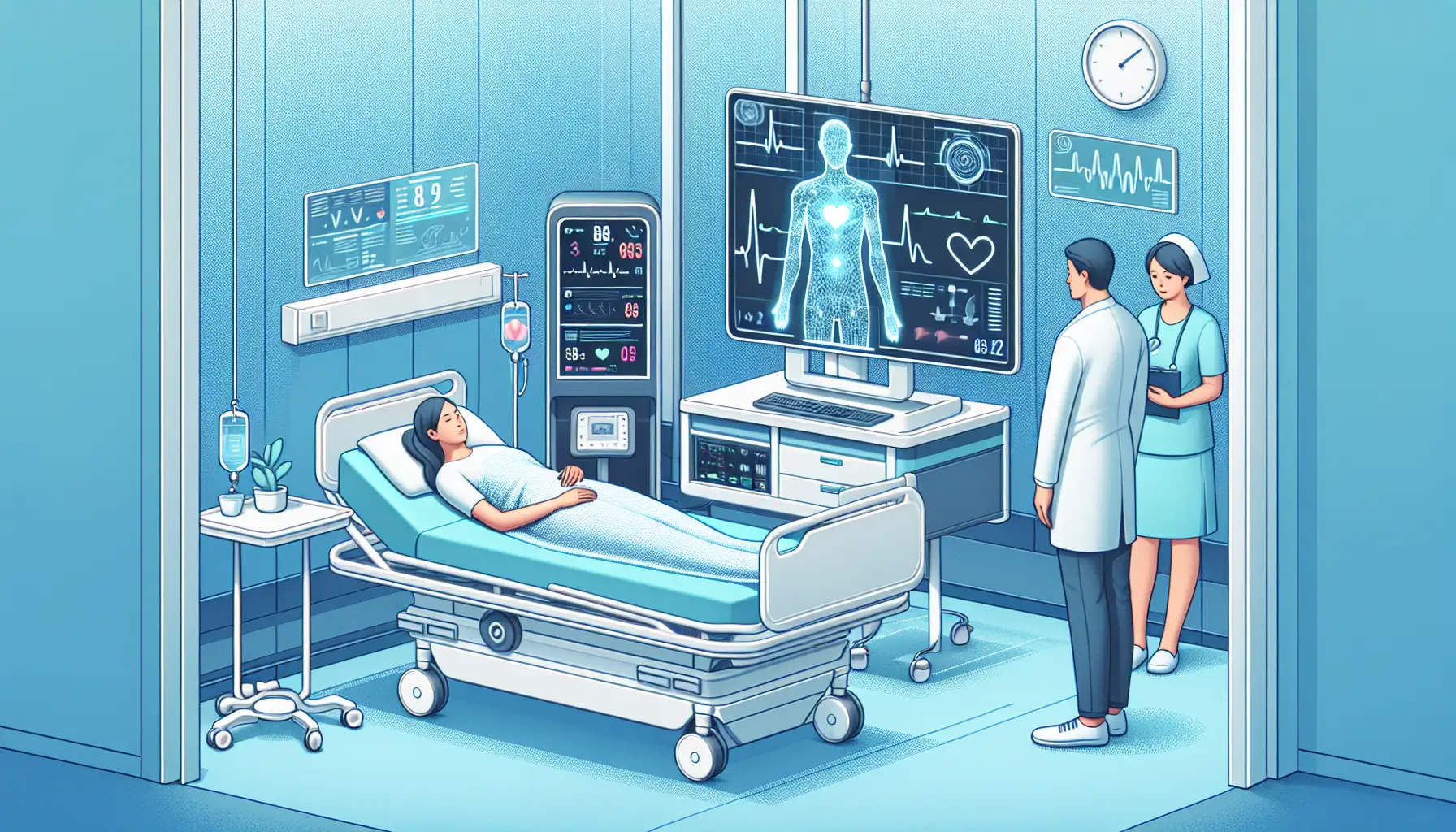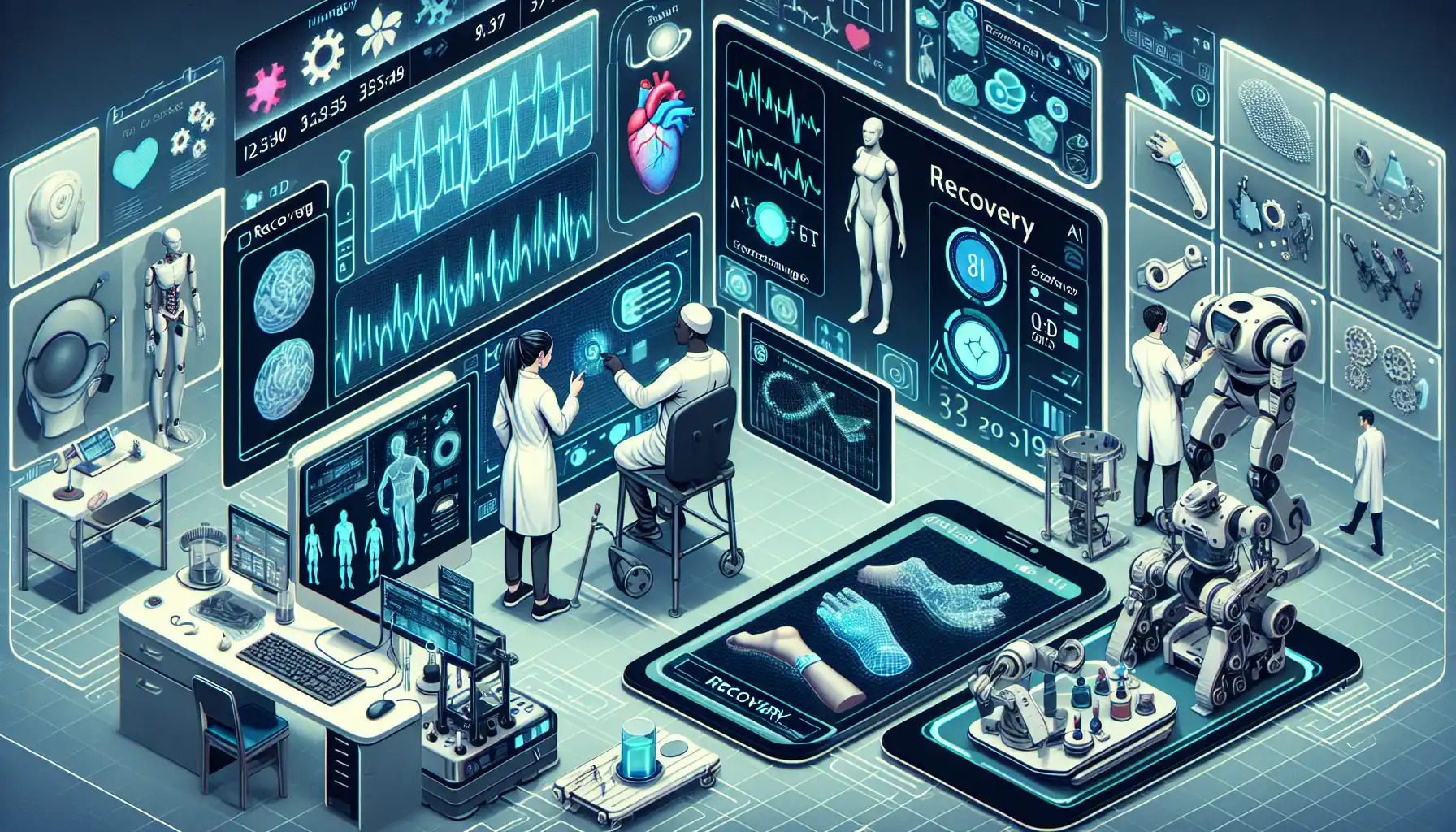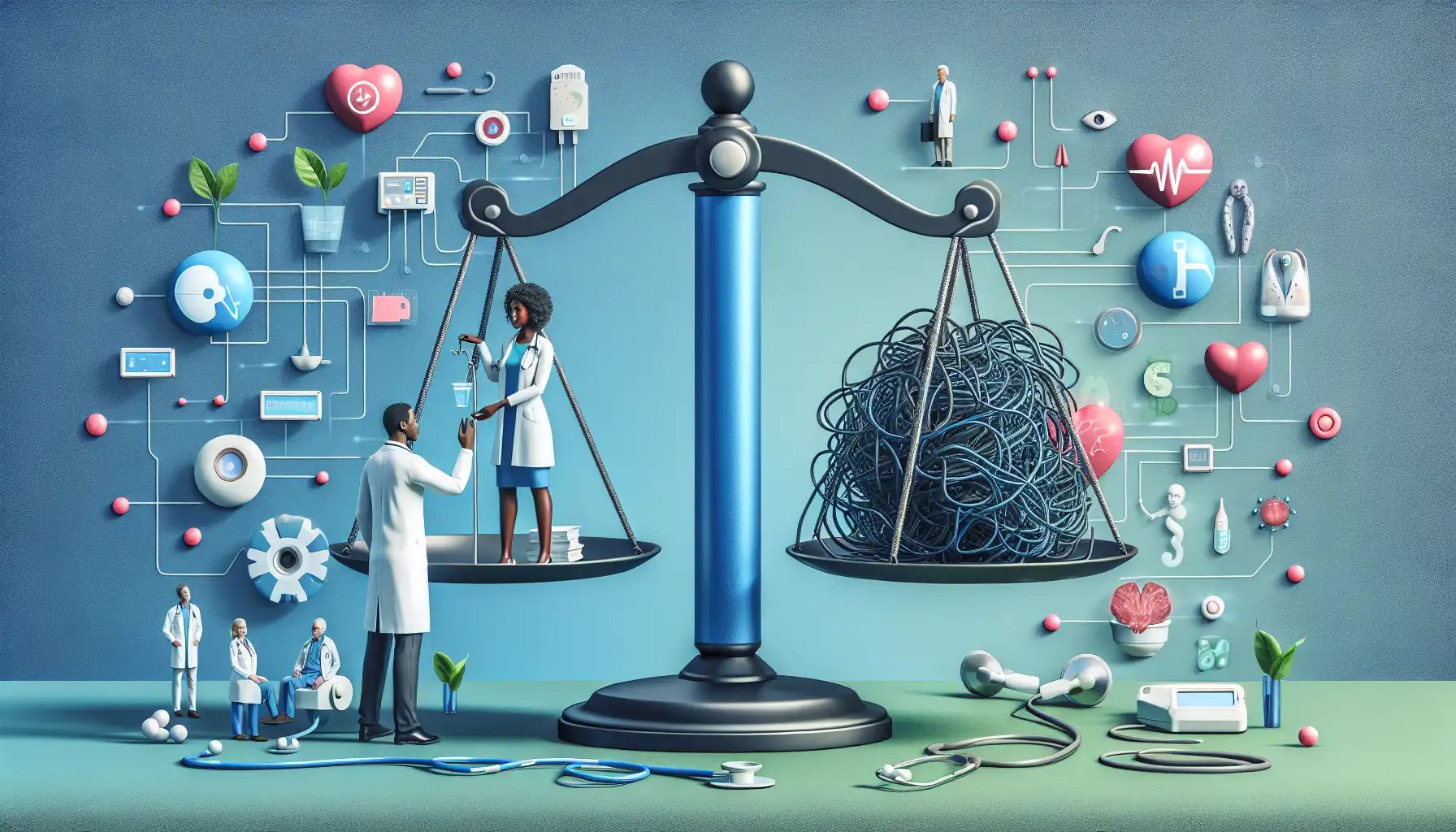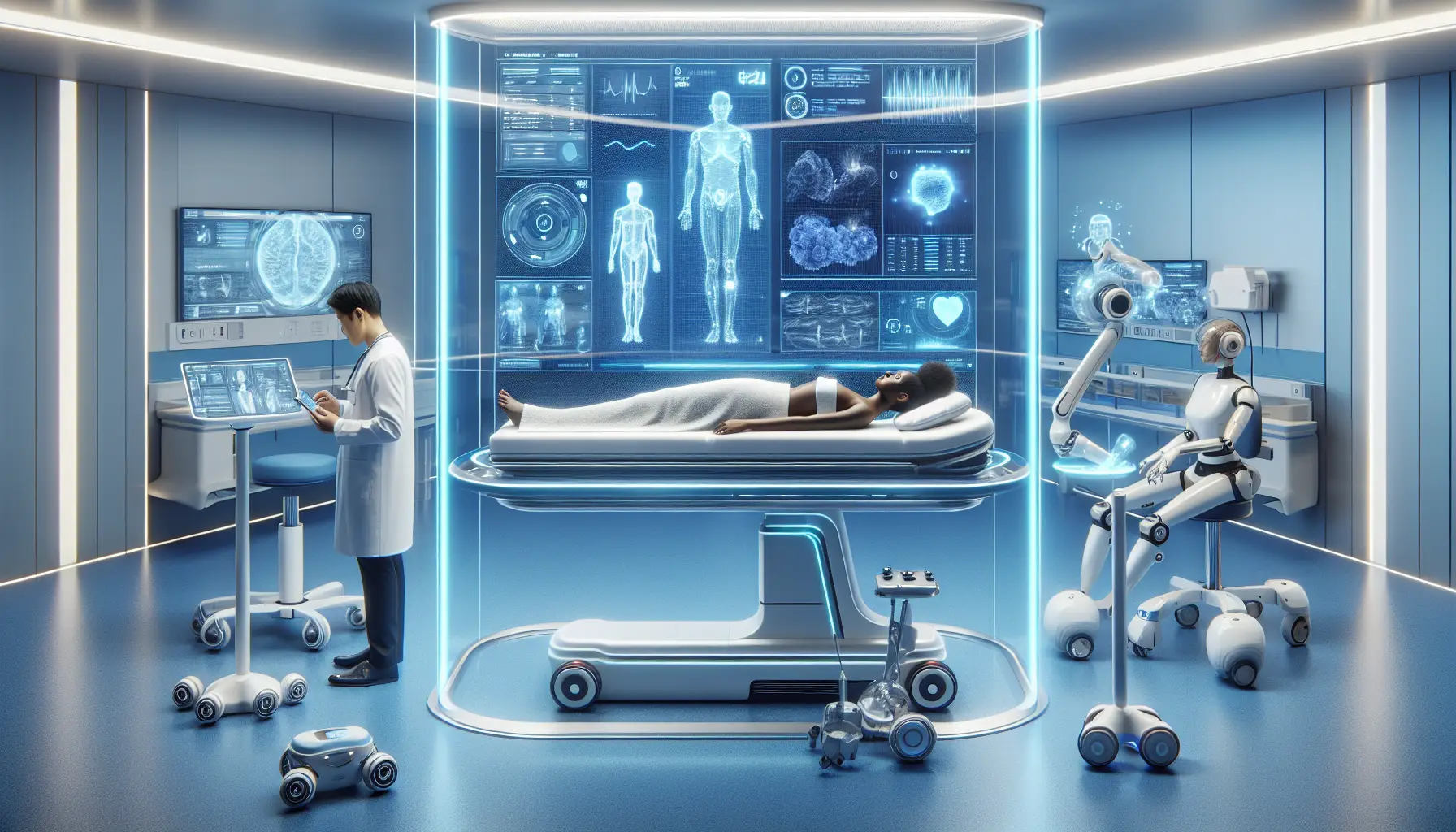The Role of AI in Modern Healthcare
AI: Your Post-Surgery Recovery Companion
Imagine having a dedicated companion, tirelessly keeping tabs on your recovery journey after surgery. That’s what
AI-driven technology feels like—an extra set of eyes, always watching, never missing a beat. It’s not just about numbers or charts; it’s about giving you the peace of mind to focus on healing while AI handles the nitty-gritty.
What makes this so transformative? Picture this: instead of waiting weeks for your next check-up, your wearable device or app sends real-time updates to your doctor. From subtle changes in heart rate to your mobility patterns, it’s like having a health detective by your side.
Here’s how AI steps in to make a difference:
- Personalized insights: AI tailors recommendations based on *your* unique recovery progress.
- Early warnings: Spotting potential complications before they become serious.
- Seamless communication: Instantly sharing data with healthcare providers for faster decisions.
It’s not just tech—it’s a lifeline. With AI, recovery isn’t a solo journey anymore. It’s a team effort, where every detail of your healing story matters.
Key Benefits of AI in Post-Surgery Recovery Monitoring

AI-Powered Insights That Feel Like a Personal Health Coach
Imagine having a dedicated health coach by your side, day and night, ensuring every step of your recovery is on track. That’s the magic of AI in post-surgery care. This isn’t just cold data collection; it’s about creating a deeply personalized experience that feels like someone truly “gets” you.
With AI-driven monitoring, every little detail matters. It tracks things you might overlook—like subtle changes in your heart rate or how well you’re sleeping. Then, it translates all that into meaningful insights, kind of like a friend nudging you to drink more water because they noticed you’re dehydrated.
Here’s where it gets exciting:
- Early detection of complications: AI spots red flags faster than you can say “infection.” It’s like having an early-warning system tailored to your body.
- Tailored recovery plans: Forget one-size-fits-all advice. AI adjusts recommendations based on your progress, making them as unique as your fingerprint.
No more guesswork, no more “Is this normal?” moments. AI makes sure you’re not just healing, but thriving. It’s not just tech—it’s a lifeline, reimagined.
AI-Powered Tools and Technologies for Recovery Tracking

Next-Level Tech for Recovery Monitoring
Imagine having a personal health assistant that never sleeps, never forgets, and always has your back—literally. That’s the magic of
AI-powered tools in post-surgery recovery. These digital wizards don’t just track your progress; they transform the entire process into something smoother, smarter, and surprisingly human.
One standout feature? Wearable devices equipped with
AI-driven sensors. These gadgets do more than count your steps—they monitor your heart rate, mobility, even subtle changes in your body temperature. Feeling hesitant about whether you’re overdoing it or not doing enough? These tools provide real-time feedback so you don’t have to guess.
- Smartphone apps that act like your personal cheerleader, sending reminders to move, hydrate, or rest.
- Virtual assistants that analyze your pain levels and recovery metrics to tailor suggestions just for you.
And let’s not overlook the game-changer:
predictive analytics. This AI superpower identifies potential setbacks before you even notice them. It’s like having a crystal ball—but one powered by data and precision, not mysticism. Recovery isn’t just faster; it’s safer and less stressful.
Challenges and Ethical Considerations in Using AI for Healthcare

Navigating the Ethical Maze of AI in Healthcare
Imagine entrusting a machine with your most personal health data. It’s not just science fiction anymore—this is the reality of using
AI in post-surgery recovery. But here’s the catch: while AI can revolutionize care, it also raises some thorny questions.
For instance, how do we ensure
data privacy when your heart rate, sleep patterns, and even emotional well-being are tracked 24/7? It's like opening a diary to strangers. And what about biases? If an algorithm isn’t trained on diverse patient data, could it unintentionally prioritize one group over another? That’s not just a glitch—it’s a serious ethical storm.
Then there’s the human element. Will patients feel alienated when machines replace face-to-face check-ins with doctors? The trade-off between efficiency and empathy is a tough pill to swallow.
- Transparency: Do you really know how your data is being used?
- Control: Who gets the final say—AI or your healthcare provider?
The potential is staggering, but so are the stakes. It’s a balancing act that demands both caution and creativity.
Future Trends in AI-Driven Post-Surgery Care

Revolutionizing Recovery: AI's Role in Your Healing Journey
Picture this: you've just come out of surgery, and instead of relying solely on periodic doctor visits or scribbled notes to track your recovery, you have a digital ally watching over you 24/7. This is where
AI-driven post-surgery tracking steps in, transforming the way we heal. It’s not just technology—it’s like having a personalized recovery coach by your side.
With advanced algorithms, AI can monitor key indicators like mobility, heart rate, or even subtle changes in your mood. For instance, wearable devices sync with AI platforms to alert you if your activity levels dip or if swelling increases. These aren’t just numbers; they’re signals that guide your care team to act quickly, whether that means adjusting medication or tweaking your physical therapy plan.
- Smart sensors in bandages detect infection risks before symptoms appear.
- Speech analysis via apps monitors cognitive function after brain surgery.
- Predictive analytics flag potential complications days in advance.
Imagine how empowering it feels to know that every beep, every notification, is tailored to your body’s unique healing rhythm. This isn’t sci-fi—it’s your future, today.








